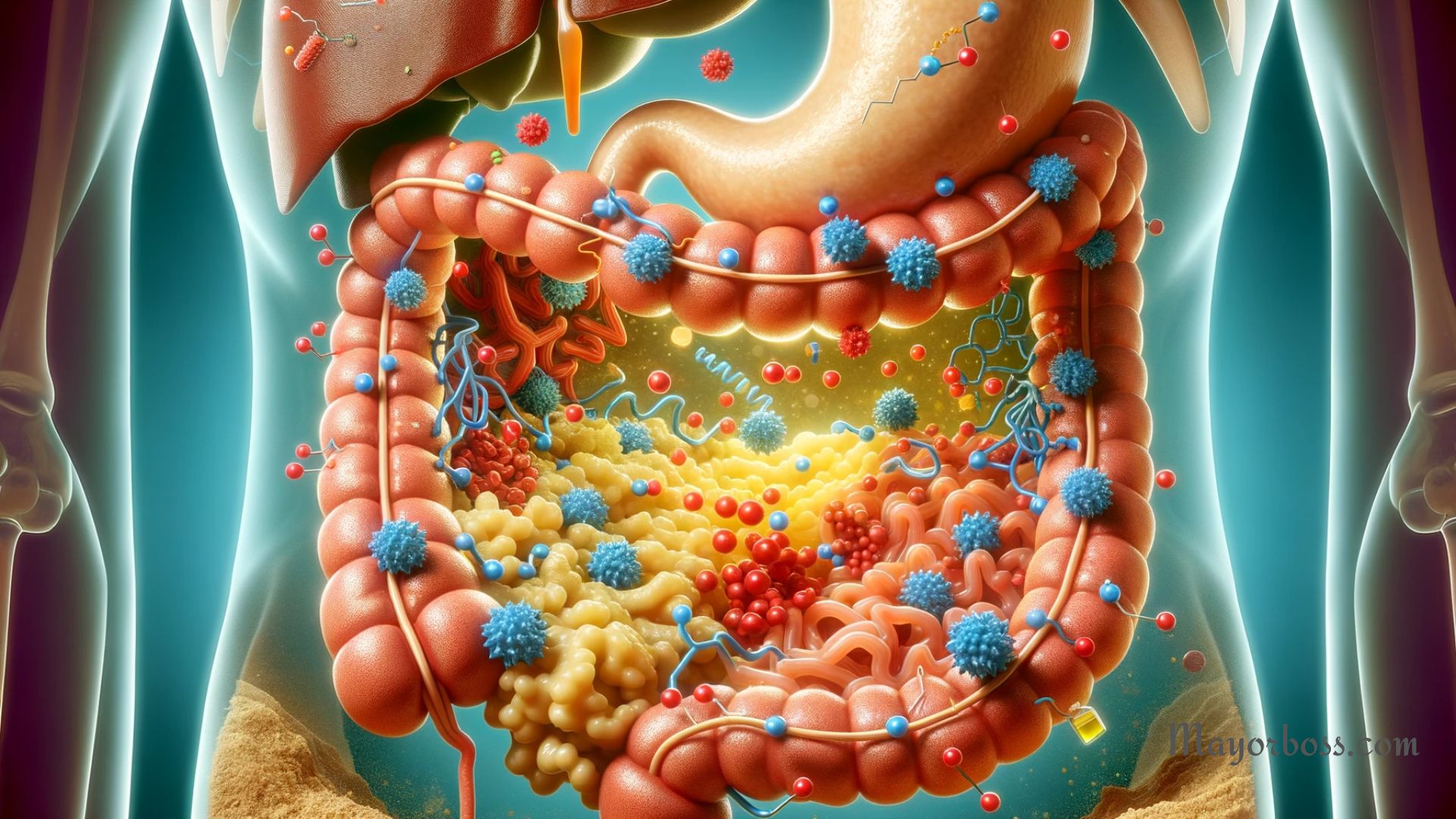What Are Digestive Enzymes, And What Do They Do?
Digestive enzymes are special proteins that your body makes to help break down the food you eat into smaller, absorbable parts. Think of them as your body’s own team of demolition experts, working to chop up your meals into building blocks your body can use, like sugars, amino acids, fatty acids, and more.

What Are Digestive Enzymes?
So, you might wonder, what exactly are digestive enzymes? Digestive enzymes are tiny protein molecules that have a very important job. They work tirelessly to transform the food you eat into energy and nutrients that your body needs to function, grow, and repair itself.
When you take a bite of your favorite meal, these enzymes get to work. They’re found in your saliva, stomach, pancreas, and small intestine. Each location hosts different enzymes designed for specific types of food.
How Do Digestive Enzymes Function?
Breaking Down The Food You Eat
Imagine you’ve just eaten a piece of bread. It’s full of a sugar called starch. Your saliva has enzymes like amylase that start to break that starch down into smaller sugars right in your mouth!
The Stomach’s Role
Once food reaches your stomach, other enzymes, like pepsin, jump into action. They focus on proteins, breaking them down into smaller parts called peptides.
The Small Intestine and Beyond
As the partly digested food moves into your small intestine, it’s met with a burst of enzymes from your pancreas. These include:
- Proteases: They keep working on breaking down proteins into even smaller amino acids.
- Lipases: These guys have a love for fats. They break down fats into fatty acids and glycerol.
- Amylase: Here it is again, continuing its mission to turn starch into sugars.
Absorption
After these enzymes have done their job, the tiny nutrients that result are ready to be absorbed. This happens mostly in your small intestine. From there, your body can use these nutrients for energy, growth, and cell repair.
Why Are Digestive Enzymes Important?
Without these enzymes, you wouldn’t get the benefits from the food you eat. They’re essential because they:
- Allow your body to extract and absorb nutrients.
- Help prevent discomfort from indigestion.
- Aid in managing various health conditions that affect digestion.
In fact, for people who have conditions like pancreatitis or cystic fibrosis, doctors often recommend taking supplemental enzymes to help their bodies break down food.
When Digestive Enzymes Are Out of Balance
Sometimes, your body might not make enough enzymes, which can lead to problems like gas, bloating, diarrhea, oily stools, discomfort after eating, and stomach pains, or cramps. If you find yourself with these symptoms frequently, it’s wise to talk with a doctor. They might suggest lifestyle changes, dietary adjustments, or even enzyme supplements.
What Are Over-the-Counter Digestive Enzymes?
Over-the-counter (OTC) digestive enzymes are supplements that you can buy without a prescription. People typically use these if they feel their body isn’t making enough natural enzymes or if they’re experiencing digestion-related discomfort.
These supplements come from different sources, including animals (like pancreatin from pigs), plants (such as bromelain from pineapples), or they’re made in a lab.
How Do They Help?
Boosting Your Digestive Power
For example, if you have trouble digesting lactose, the sugar in milk, there’s an enzyme supplement called lactase that can help. When you take it with a dairy-containing meal, it can help reduce symptoms like gas and bloating.
Assisting with Chronic Conditions
People with chronic conditions, such as chronic pancreatitis or cystic fibrosis, might take OTC enzymes to assist their bodies in digesting food more effectively and to improve nutrient absorption.
Easing Digestive Discomfort
Even if you don’t have a chronic condition, you might find these enzymes helpful. They can sometimes aid in reducing discomfort after a particularly large or fatty meal.
Choosing the Right Supplement
Read the Labels Carefully
When you’re looking at OTC digestive enzyme supplements, it’s important to read the labels. You want to see which enzymes they contain and what types of food they’re meant to help with. Some are broad-spectrum, covering a range of foods, while others are more specific.
Quality and Effectiveness
Since these supplements aren’t regulated as strictly as prescription medications, their quality can vary. It’s smart to choose products from reputable brands. Sometimes, doctors or dietitians can recommend a brand or a type of enzyme based on your specific needs.
Final Thoughts
Digestive enzymes play an essential role in keeping you healthy by making sure you get all the good stuff out of what you eat. They’re the unsung heroes working behind the scenes every time you enjoy a meal. If you have concerns about your digestion or think you might need some extra help, it’s always a smart move to talk to a healthcare provider.
